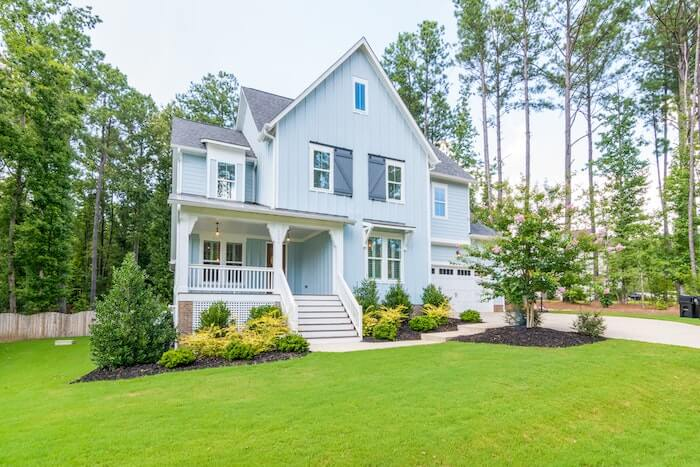Airbnb Rental Arbitrage: FAQ and Success Guide

Short-term rental brands like Airbnb are becoming increasingly versatile as there are so many different ways to earn money on the platform. Airbnb rental arbitrage is one popular avenue to consider if you want to build a business in the vacation rental industry, so you can start an Airbnb rental arbitrage business and make a good profit.
Knowing how to get started in Airbnb arbitrage is a fast way to get into short-term rentals but you need to understand the business model and know what you’re doing.
Here’s how smart entrepreneurs are making money with an Airbnb rental arbitrage property and some important things for you to know.

What Is Airbnb Rental Arbitrage?
In a nutshell, Airbnb rental arbitrage refers to the practice of renting properties just to sublet them on Airbnb. In other words, you can start to earn money by listing a property on Airbnb if you make more than the sum of your rent and business-related expenses.

Although it sounds easy and attractive, there are still some legal issues that should be taken into consideration before you decide to earn with Airbnb arbitrage.
Why Does Airbnb Rental Arbitrage Exist?
People are always in need of short-term accommodation. In major cities and tourist destinations, hotels can be expensive. Airbnb has filled the gap in the market by offering more affordable accommodation.
As a result, by having your vacation rental listed on Airbnb at a daily rate that is higher than the property expenses, you can make a tidy sum. However, the unit must still be less than what a person might pay for a comparable room at a hotel in the same area.
Make sure you pay attention to the Airbnb rental arbitrage legal process as running an illegal Airbnb arbitrage property will result in substantial consequences.

How to Make Money with Airbnb Rental Arbitrage?
Working out your potential Airbnb rental arbitrage income is a complex process. Short-term rental arbitrage is not straightforward so before you jump in at the deep end, check out these factors first:
Conduct Market Research
Before you take the plunge and become an Airbnb host, it is essential to conduct solid market research. First off, you need to identify which cities and areas can be of major interest to you.
The key to a lucrative vacation rental business is to find a property in a profitable area. Otherwise, it will be challenging to ensure a stable flow of rental income.
If you are still in doubt about what destinations are worth your attention, take a closer look at this analysis of the top US locations. Apparently, bustling cities with the most attractions get more tourists.

The other important factor to consider is the ROI that a vacation rental property can generate. This can be achieved by selecting a property closer to the main attractions and amenities (like a metro station or grocery store).
Though, while acquiring a property on the outskirts of the city may look more affordable, it will hardly help you succeed in the short-term rental market.
If you manage a property in a more popular tourist area, you can charge a higher nightly rate. In any case, before making your final decision regarding your short-term rental investment, check out nightly rates of similar properties in the neighborhood. What’s more, by finding out the average occupancy rate and your possible costs, you’ll be able to estimate your earnings and decide on the best option for you.
Get Familiar with Local Regulations
Another essential point to take into account before you start earning with rental arbitrage is local regulations and laws. It is not a secret that over the last few years many cities have reinforced regulations and restrictions on short-term rentals.
If you don’t know where to start, check out this article that will give you an idea of what rules and regulations you need to consider.
In some cities, vacation rentals might even be illegal, while others may have regulations on annual night limits. Will you be able to make a substantial profit if you rent out your property, for example, only for 90 days per year? This is definitely something to think about if you don’t want to go into the red.
In addition, you need to make sure that your landlord will allow you to rent out a property on Airbnb or any other vacation rental site. Otherwise, you can put yourself at risk of being evicted.

Estimate Your Starting Costs
Setting up your business also comes with other expenses. Apart from paying for your apartment, you’ll need to take into account other starting costs. They will include:
- Application fee
- Deposit
- Insurance
- Legal fees (permits, licenses, etc.)
- Furnishings
- Appliances
Though at the beginning you will have to dip into your pocket, it won’t take too long for your business to generate a profit. However, it will only work out if you have selected the right option for your business.

Create a Listing for Your Vacation Rental Property
The next step on your way to successful Airbnb arbitrage is listing your property on vacation rental platforms. Nowadays, more than 90% of reservations take place on vacation rental platforms like Airbnb, HomeAway, Booking.com, etc.
The thing is that people trust big platforms more than individual websites. Although Airbnb is the most popular platform for short-term rentals, try to diversify your approach. By listing your rental on other (even lesser-known) platforms, you can attract more travelers and generate several income streams.

Optimize Your Listing for Better Rental Arbitrage Business Visibility
You won’t make a fortune through rental arbitrage if you don’t improve your ranking on vacation rental platforms. In reality, you need to go all out to drive more traffic to your listing and more travelers to your rental.
Make sure that every aspect of your listing is up to par, whether it is photos or a host profile description. Find out how to optimize your listing by reading this insightful guide.
By doing your best, you can increase your listing visibility and consequently generate more bookings.
Automate Your Business
Property management calls for hard work and may take up a lot of your time. Being overwhelmed and overloaded with tasks, Airbnb hosts often have no opportunity to scale their business. However, getting more tech-savvy and taking advantage of business automation tools can be your lifesaver.
You can start with vacation rental software to automate your guest communication, synchronize calendars and coordinate cleanings. If you struggle with your choice, check out our guide to help you find the best software for your needs.
Other ideas on automation include:
- Check-in/checkout automation
- Usage of smart amenities (a digital welcome book, smart thermostat, etc.)
- Bookkeeping automation
- In addition to making your business run smoothly, you’ll be able to enhance the guest experience and earn more with your rental arbitrage.
How Much Can You Earn with Rental Arbitrage?
Your profit will depend on the number of vacation rentals you have and the area they are located in. Rental arbitrage has great potential and by selecting the right business strategy you can earn two or three times more than you actually spend on your property.
For example, if your monthly rent is $1,500 you could rent out your property for $250 per night on weekends only. By having your guests for 8-10 nights per month, you’ll be able to earn $2,000 – $2,500 dollars per month. You’ll be able to pay for your rent and have $500 – $1,000 to cover expenses and still be able to grow your business.
If you manage more than one property or rent them out more often than just on weekends, your income will be much higher. A well-thought-out pricing strategy will also help you to earn more while providing the same level of service to your guests.
What Is the Formula for Successful Airbnb Arbitrage?
The right formula for achieving a profit will largely depend on your business goals. However, by calculating the weighted average rate for your area you can get a general idea of whether you can make a profit.
Here is the formula:
1. Obtain an Average of the Daily Rental Rates for Your Area for Weekdays and Weekends
You can get this information directly from Airbnb listings. Just search for comparable properties in your area and write down the weekday and weekend prices of these properties. Use a spreadsheet to make things easier.
2. Calculate the Weighted Average Airbnb Rate of All of the Properties
Weighted Average Airbnb Rate = (Weekday Average Airbnb Rate 5 + Weekend Average Airbnb Rate 2) / 7
For example, if the weekday average Airbnb rate is $50 and the weekend average Airbnb rate is $100, the Weighted Average Airbnb Rate is $64 because ($50 5 + $100 2) / 7 = $64.
3. Calculate the Cost of Your Property Expenses by Day
Now take your total monthly property costs and divide it by 30 to obtain the daily cost of your property expenses.
If your total property costs (including the rent and any fees) are $2,000 per month, then the cost of your Property Expenses by Day is $67.

4. Divide the Weighted Average Airbnb by Your Daily Property Costs
By dividing the weighted average rate by your daily property costs, you’ll get a Final Ratio. It will help you determine how many days per month you’ll need to rent your property in order to profit.
In this example, the final ratio is $64/$67 = 0.95.
This means that you’ll have to rent out your property for the majority of the month in order to turn a profit.
However, if this ratio equals 1 or greater, then that means you can turn a profit by renting for fewer days during the month.
Let’s say the Weighted Average Airbnb Rate is actually $125 and your Property Expenses by Day are still $67, then that means the Final Ratio is 1.87 ($125/$67), which means that you’ll be able to turn a profit in less than a month.
Ideally, you want to do arbitrage with a property that has a Final Ratio of 2.0 or higher. By aiming for a higher Final Ratio, you’ll have some leeway. This way you can ensure that you at least break even on your property every month.

What Are the Risks of Airbnb Arbitrage?
If you plan to invest in rental Airbnb arbitrage you should be aware of the risks. Here are some of the top risks that you should be aware of when managing rental arbitrage properties:
Changing Market Conditions
Understand that market conditions are always changing. As a result, booking demand for your property can change significantly from month to month. Just as in traditional rental real estate, you are still subject to changing winds of the overall housing market.
Local Regulations
Perhaps the biggest question on your mind while looking into this might be “Is Airbnb rental arbitrage legal?” Yes, but there are rules.
If you’re planning to rent a condominium or apartment unit, you have to make sure that you’re in compliance with local city regulations.
Vacation rental arbitrage regulations differ from state to state, be sure to check your local laws before getting started. There may also be Homeowners’ Association (HOA) rules that could affect your Airbnb rental arbitrage business and limit your ability to rent out your property on a short-term basis.
Make sure that you familiarize yourself with these regulations before you purchase or lease a new property.
Unexpected Events
Will you still be able to turn a profit if you’re unable to rent out your property for a few months? How about if your area is hit by a natural disaster? In order not to go into the red, consider all potential risks when calculating the minimum profit that your Airbnb business should make.

Unstable Income
Will your Airbnb income depend on seasonality? This is something you need to figure out before you select a property for your business.
Sometimes you may have an enormous influx of bookings, while other months won’t bring much profit. Even if your property is susceptible to seasonality, you can control your income by creating special offers and discounts for your guests.
Final Thoughts
Making money with Airbnb arbitrage is getting more popular as you don’t need to own a property to become a host. By conducting thorough market research and obtaining all the necessary permission, you will be able to pay for your rent and get a chance to become a prosperous full-time host.
To enhance your short-term rental business and elevate the guest experience, you can go one step further and automate your business. Saving more time on routine operations will open more opportunities for growing your business and, consequently, your vacation rental income.
Automation software like iGMS can help to streamline tasks, making it easier to grow your business.








![Your Monthly iGMS Roundup [February 2020]](/content/images/size/w600/wordpress/2020/02/igms-roundup-feb-2020-cover.png)

